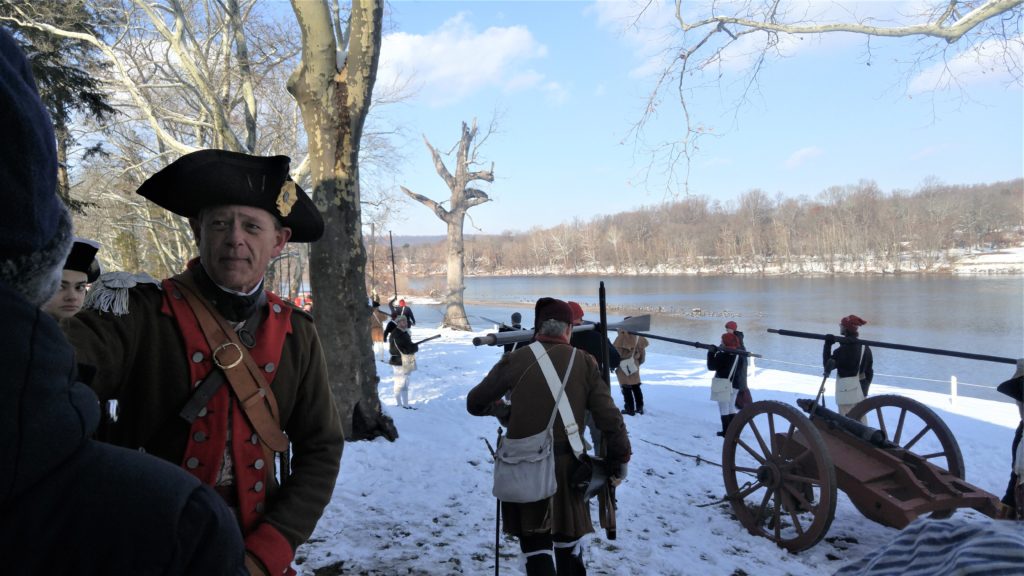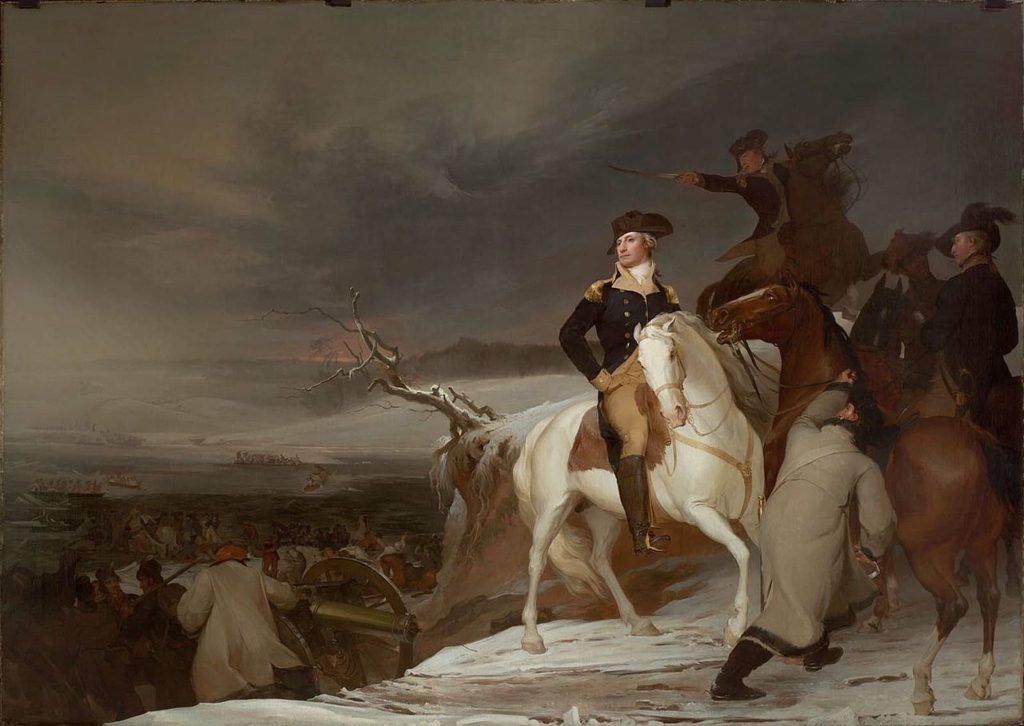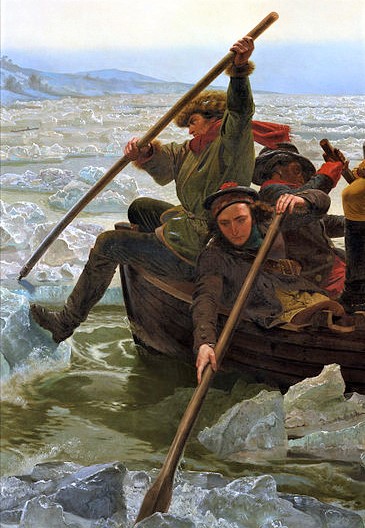When George Washington needed him most, James Slack answered the call in 1776.
Judy and Skip Yerkes share an extraordinary perspective on history. Their elegant home sits atop a ridge with an wondrous view of the Delaware River near its confluence with Cuttalossa Creek in Solebury. It’s on that river that Skip’s ninth generation grandpa helped oar George Washington’s army across the ice-clogged river in 1776 to defeat Hessian mercenary troops holding Trenton for the British.
I recently met with the Yerkes to understand their ancestor’s role in the American Revolution and their own ties to history. Skip is a tall, affable former Naval pilot from the Vietnam War era who later launched a successful aviation safety equipment business in Middletown. He grew up on None Such Farm in Buckingham where as a young boy he enjoyed exploring Buckingham Mountain and dipping into a cave thought to have been a hideout for the notorious Doan brothers, a gang of British spies and robbers from Plumstead who were Washington’s nemesis.
Judy and Skip in 1976 rehabilitated Stone Court Farm with its blacksmith shop founded in 1767 off Stoney Hill Road in Buckingham. It served as an encampment site for Washington’s Continental Army before the Christmas crossing. The home was where the couple raised their children who vouch they’ve seen Revolutionary War ghost soldiers in the house during their childhood.

Skip Yerkes is descended from James Slack, 20, who helped Washington’s army cross the Delaware for the surprise attack on Trenton. As Judy explained, “James and a bunch of friends noticed all the troops gathering and went up to one of the generals and asked, ‘What can we do?’ ‘What do you know about the river?’ the officer asked. ‘Oh, we know all about it.’ ”
According to historical records, the friends included James’ two brothers, Abraham, 25, and Cornelius, 23. All had fished the river and knew the currents and eddies having grown up around Washington Crossing, then known for its McConkey’s Ferry. The Slacks were local militiamen and worked the family farm on today’s Slack Road, a mile from where the army forded the Delaware.
The Revolution was going poorly in December 1776. Washington had suffered several battlefield defeats. He commanded an army of 2,400 deployed in camps set back from the river from Morrisville west to New Hope so they wouldn’t be seen by spies in New Jersey. Their mission was to fortify Bucks in case the powerful British army in northern New Jersey tried to invade in a march on Philadelphia.
Previously, the Continentals had removed all river craft from the New Jersey side of the Delaware. But would the enemy bring their own boats? No one knew. Washington waited in Morrisville at his Summerseat Mansion headquarters where he eyed 1,380 Hessian mercenary troops guarding Trenton. Somehow, someway, the general needed a victory to signal the war was not a lost cause.
From Bristol, Col. Joseph Reed organizing the Pennsylvania militia urged action in a dispatch. “Will it not be possible, my dear General, for our troops or such part of them as can act with advantage to make a diversion or something more at or about Trenton? The greater the alarm, the more likely success will attend the attacks. . . Our affairs are hastening fast to ruin if we do not retrieve them by some happy event.”
Washington had come to the same conclusion. “For Heaven’s sake keep this to yourself, as discovery of it may prove fatal to us,” he replied. “Necessity, dire necessity, will, nay must, justify an attempt.”
Aside from boats secreted behind wooded islands on the Pennsylvania side of the Delaware, militiamen took control of a fleet of 60-foot-long black Durham boats brought down from New Hope and hidden from view just upstream from McKonkey’s Ferry. Designed to carry coal and iron from upstate Pennsylvania to markets in Bristol and Philadelphia, they could easily be poled over river shallows and were ideal as troop transports. Washington mobilized 100 oarsmen familiar with the river including the Slack brothers to aid a regiment of skilled Massachusetts seamen in ferrying the entire army across the river amid a blizzard and ice flows. The maneuvers took all night. Washington then swarmed the Hessians by complete surprise, capturing nearly the entire garrison. It was a dramatic turning point in the war.

For James Slack and his brothers, their subsequent service is unknown. But it’s clear James returned to the family farm, married wife Alice Torbert in 1779 and raised two daughters and four sons. He lived to age 76 and is buried in a Presbyterian churchyard in Newtown. As for James’ generational grandson who also fought in a war, Skip’s very proud. “Our family has been blessed by the bounty of Bucks County for over two centuries,” he told me. “We have hopefully contributed to maintaining the freedom we all enjoy.”
Sources include “The Winter Soldiers” by Richard M. Ketchum published in 1973, “1776″ by David McCullough published in 2005 and “A farmhouse, pond and history” by Betsy Anderson published in the Philadelphia Inquirer on March 8, 1992.

